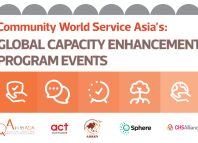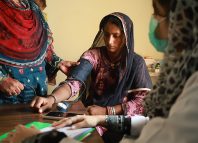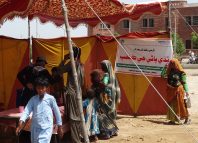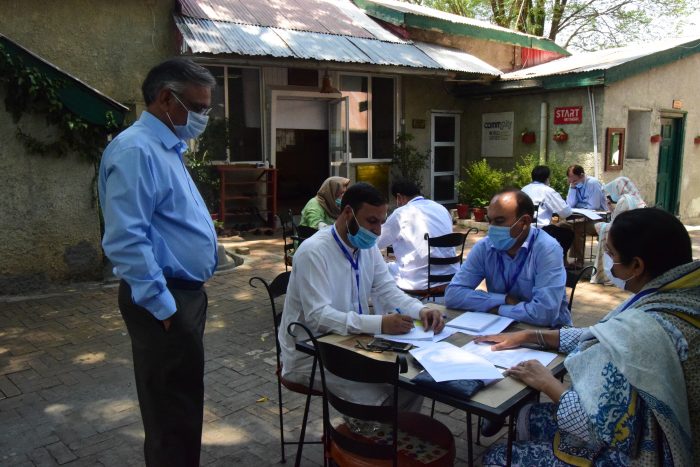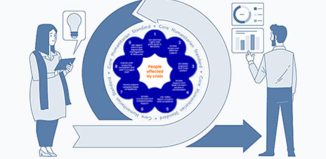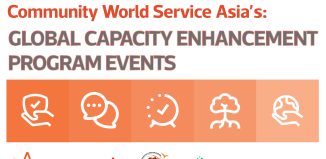Learning new leadership and management tools to effectively navigate through the pandemic and improve team motivation
“The smiles we bring to the faces of the individuals we work for inspires me to keep going and serve as many people as possible.”
Muhammad Waseem has been actively working as a humanitarian practitioner in Pakistan’s development sector since the past seven years. “As Manager Quality Assurance in Association for Gender Awareness & Human Empowerment (AGAHE), I am responsible to develop, review and implement a robust Monitoring, Evaluation & Learning framework and tools. The objective is to facilitate measurement of progress and enhance compliance of programmes and projects with AGAHE standards, policy framework and best practices. AGAHE is working on various thematic areas, including Water, Sanitation & Hygiene (WASH), Food Security & Livelihoods, Health & Nutrition, Disaster Risk Reduction & Resilience, and Governance.”
“Managing teams was the most challenging responsibility after being promoted to Manager Quality Assurance. Since the promotion took place during the COVID-19 outbreak in 2020, the projects became extremely time-sensitive, and workload was at an all-time high. I always believed that working in a group was more efficient than working alone. But it did not take me long to realise that it’s only easier when done right. Team chemistry, capabilities, and challenges faced are the most essential factors to consider while dealing with teams in times of crisis. After hearing about the training workshop on ‘Leading in Complexity and Uncertainty’ in April from a friend, I immediately applied,” shared Waseem.
Seventeen participants representing 14 national and international non-governmental organisations took part in the training. Waseem, along with other humanitarian workers, explored various leadership styles and skills during the training and analysed their own leadership styles based on self-assessments. Participants learned new methodologies and tool to improve their leadership skills and devised strategies for peer assistance exercises and technical mentorship. “The training material was prepared with the participants’ consent. This was a motivating aspect since it allowed us, as participants, to suggest essential subjects for inclusion in the training agenda, making the training more relevant and effective in terms of learning. Arif Jabbar, the lead facilitator, adopted a participatory approach throughout the five-day workshop which enabled an effective sharing and learning process among all us participants.”
Waseem was new to the MBTI and Emotional Intelligence models of self-awareness that were introduced in the training. “It’s hardly news that people leave organisations because of poor management. Tools like the Myers-Briggs Type Indicator (MBTI) can be extremely helpful here. The MBTI and Emotional Intelligence workshop was an excellent method for us to develop our own self-awareness, and it also served as a strong foundation for learning what would potentially frustrates or upsets others. This session’s group activity targeted at self-assessment in times of complexity and uncertainty, allowing us to discover important qualities to work more successfully with others and manage our team in a more emotionally intelligent manner.”
Waseem initiated regular meetings with his team members after taking the training. “The ‘Leader as a Coach’ session improved my communication skills and helped me understand my team’s dynamics more. I started scheduling twice-monthly meetings with my team members to give them an opportunity to share their challenges and work together to find solutions. Keeping the mechanism of accountability in place without compromising teams’ trust and confidence was a big challenge. Meetings with teams that worked remotely helped to bridge the communication gap and accelerate project delivery. This initiative has increased our team’s productivity and motivation to work in unprecedented times.”
Constant communication with his teams has been a game changer for Waseem. “My staff has more faith in me and the work we are doing now. Overcoming my negative leadership qualities and improving team communication has increased my team’s trust in me, and we are now working more collectively than ever before.”

